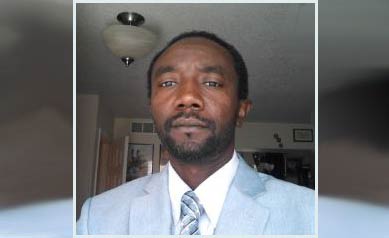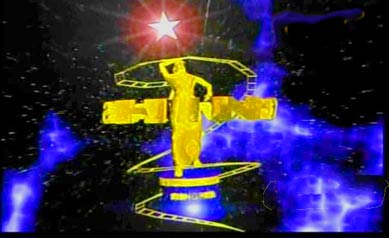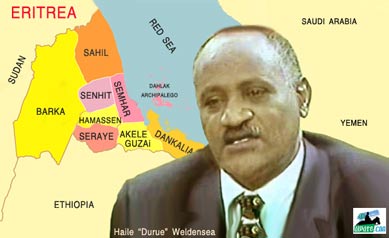Hollow Existence

‘Fanakowa geriso etetaso, Hakowa Uya lesumala katowana’.
(Whatever the case, daybreak will bring things to light)
My name is Yona Germano Nati. I was born in Aligidir, in the Gash-Barka region of Eritrea near the Sudan border. To the east lies the town of Tessenei which is only 11 miles away from my place of birth. If you can visualise the bread-basket-ring of Eritrea (Tessenei, Haicota, Bisha, Akurdet, Barentu, Badumma, Boshoka, Dokinbia, Om Hajer) then you can easily make out my roots. I am a proud Eritrean Kunama whose story bears various pockmarks that defined my character and my identity. No matter how interesting, I am not going to delve into the history of Gash-Barka vis-à-vis the Eritrean struggle for independence in this brief account; neither am I going to recount the ups and downs of my personal history and that of the proud Kunamas who lived through, as far as I can remember, a gruesome existence. However, let me just underscore the fact that I am mindful of the stoic traditions, rich customs and cultural legacy of my people; and with that in mind I would like to move on to ‘the other story’ of my hollow existence with the aim of staying relevant to the campaign against my father’s unjust incarceration.
In order to give the other story a context, allow me to mention ‘Barentu’ whose existence reflects the life the Kunamas, as well as the Nara people, had to sustain for decades and yet how they managed to deal with their plight with stoicism and fortitude. Think of Barentu as a former fort for the Italian forces and a base for the European missionaries before the armed struggle started. Barentu was, and still is, a centre of many agricultural ventures which attracted thousands of freeloaders and land-grabbers who exploited and side-lined the local population. Again, Barentu used to be the garrison for the Eritrean police commandos which induced certain conformities resulting in confusions. The Ethiopian army had a large presence there which created ad hoc configurations of local militias that were exploited; and at times the militias stood up to units of marauding highlanders and freedom fighters. Yes, Barentu was a fierce battleground that witnessed repeated EPLF attacks and many Ethiopian counterattacks that totally disrupted and destroyed the local way of life. When one thinks of the collective punishments the Kunamas received, the abuse and insolence they endured, the refugee life they were forced to lead and more, is indeed an emotionally draining experience. I would say those occurrences pretty much describe the life of an average Kunama.
In 1995 I took part in the third round of the National Service in Sawa. After six months of military training thousands of us were made to trek the rough country for one month – Hawashayt, Zara, Felket, Mai Himet, Marsa Teklay, Nakfa, Af’Abet, Keren and more. During the 30-day foot journey we visited renowned fronts and significant camps such as Ararib, Hishkeb, Amberber and Arag – areas of great historical significance to Eritreans. Such locations illustrate the arduous stories of the Eritrean struggle for independence and remain stark reminders of the sacrifices made by our liberation fighters and the contributions my own father made in the armed struggle.
Sawa was just an open space and only a makeshift camp then. I spent the ensuing year of national service in many Kunama villages such as Boshoka, Karkon and Ambori. I also remember the time I spent in Mensura and the fond memories it left in me. After I finished my national service I started teaching in Shambakko which I enjoyed very much. I admit I used to see the beauty of ‘la patria’, life, friendship, and other humane qualities we were beginning to champion as Eritreans during the post-independence era before the president turned into a malicious man, not only with inactive, inept but also with corrupt conscience. In 1998, we, those of us who took part in the 1st – 4th rounds of Sawa training, were suddenly recalled and spread out in the southern border to carry out ‘development projects’. I am not sure whether it was coincidental or intentional, the Badumma war erupted soon after our deployment.
The war was intense and many young people died in defence of Eritrea. We were patriotic soldiers and we did what we had to do to fulfil our duties. Although the war was utter inferno, spending time with my fellow Warsay brethren at the frontline was always inspiring. Now that I am older, every now and then I look back to assess the battles that took place in and around Badumma, battleground right in the heart of the Kunama land. Of course, there are times that I lament why the Kunama land and its people had to bear the major brunt of the previous battles and that very brutal border conflict.
I did take part not only in the Badumma war, but I was also deployed to the Zalambesa and Tsorona fronts in Debub, east of Shambakko. I confess that I lost my innocence at those fronts as well as so many of my friends. There I was, in independent Eritrea, going through the same experience as my battle-hardened father. In order to deflect fond memories of my dear father which dampen my spirit copiously, I choose to remember our meraHti ganta and meraHti Hayli (platoon and company leaders) I used to look up to … Hasebela, Daniel (completely disfigured), wedi Ismail, wedi Bashai, wedi Gere, wedi tKul, Zerai and many more … staunch and heroic military figures – sadly, many of them never returned; may their souls rest in peace. What a tangled web did Eritrea weave when the top leaders took us for granted and led us to a conflict that could have been avoided! They squeezed us empty, and then they tried to fill us with small-minded hogwash.
Memories of my friends who perished in the war remind me of the sacred hope to which I give refuge in my exiled heart. Tears will not fall on their graves … but I hope tears of joy will be shed in their memory, during the great embrace with their ghosts when we, the living, celebrate the rebirth of our country.
Dear reader,
I have tried to steer clear of personal stories but I was somehow driven by the context of my story rather than the substance of the intended account. ‘The other story’ was meant to address questions concerning social justice in general and my father’s unjust, incommunicado detention in particular. I did try to ask questions that are relevant to my father’s absence, but silently. In many of the paragraphs I asked no questions at all. I wonder why I put real issues on the back-burner when my conscience dwells in my father’s cell. I do think of all the blood-letting and my father’s unending plight – major sticking points in my life. Perhaps that has something to do with my Hollow Existence.
Now I see the world of Eritrea, shaped by the PFDJ escapades, is filled with force that tries to do everything while justice is relegated to doing nothing. My father’s unjust imprisonment and incommunicado detention is a case in point. Yes, I see the PFDJ members, like the morally indifferent pack, are like dogs tied to a cart, and compelled to go wherever it goes. They are acting irrationally – duped into believing my father and his comrades committed ‘treason’. Why did they turn Eritrea into a lunatic asylum for the sane? When will Eritrea rise up to dispense eyesight to the visionless PFDJ crowd?
Dear father,
You stood firm when others buckled. Wherever I go, there you are! I remember you more fondly than ever now that my son is named after you; I see, like a shadow, following me everywhere. I realise you are just a human, mortal and of course, fallible like all of us. But I see in your spirit something I hope to see in myself. That is why I respect you and look up to you. When your sense of right and wrong beckoned, you, together with your other colleagues, responded by sharing your ideals via the open letter. That is why I say you will always be remembered by the conscientious; and you will remain part of the Eritrean history. On the other hand, I feel sorry for President Isaias Afwerki for he gave your call a deaf ear by putting you in jail instead; and that is why history is not going to be kind to him!
Years after I suffered the quiet anguish of your unjust imprisonment, a former prison guard announced, rather pitilessly and unconcernedly, that you passed away while in prison. That I do not believe because I did not attend your funeral either in physical or abstract worlds. I do not know who conducted the ancestral rites; I do not know who wrapped your body in a shroud; I do not know who put the final nail in the coffin; I do not know who dug your grave; I do not know who lay earth over your eternal bed; I do not know whether any of your comrades gave either a eulogy or ‘awet nHafash’ cry at your funeral. What I know is you are not going to be a forever-prisoner. Father, I hope you understand I am desperately rummaging around for a proper sense of closure, don’t you?
Fanakowa geriso etetaso, Hakowa Uya lesumala katowana.
The story is written in collaboration with Free Our Parents – Eritrea
POCs: Dawit Mesfin and Tsedal Yohannes




Awate Forum